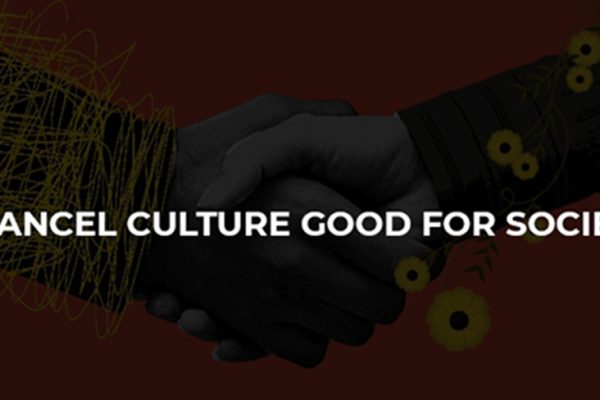I hope your start of June is going great and you’re achieving what you have planned for the summer. Today I want to talk about an interesting topic. Before we begin..
Weekly Inventory Check:
There’s a fresh perspective on goal setting that goes beyond the typical weekly, monthly, or yearly approach. It’s the concept of seasonal goals, and with summer kicking off, it might be worth considering. With seasonal goals, you align your objectives with the characteristics of each season. For instance, during summer, you can focus on goals specific to this time of year.
Cancelling vs. Holding People Responsible
In this week’s newsletter, we delve into the thought-provoking topic of canceling versus holding people responsible.
Cancel culture has often been associated with making individuals or others feel more responsible. It is believed that by canceling someone, it serves as a deterrent, encouraging others to conform. This notion draws parallels to the punitive nature of the legal system, where punishments act as deterrents for potential criminals. However, I want to argue for a more rehabilitative approach—a system that promotes the reintegration of individuals into society.
When we consider how we treat those within the prison system, it becomes clear that the expectation is for them to be permanently removed from society. It’s a hopeless case to await their transformation into functioning members once again because being prisoned gives them a label and altogether takes away all the opportunities one can have. And that’s exactly how the legal similar matches the cancel culture. However, holding someone responsible involves making them understand the consequences of their actions, the pain they may cause, and the privileges or rights they may violate. It is about fostering awareness, learning, and growth, making individuals accountable for their behavior.
By embracing a system of judgment and accountability, we offer individuals the opportunity to comprehend why certain actions are unacceptable. Shunning and isolating them through cancellation does not foster learning or understanding. If you want to create awareness. that cannot be achieved by denying individuals the chance to grasp why their behavior is deemed unacceptable. For instance, in the past, specifically until the last decade or so, Saudi Arabia had a practice where all criminals, particularly thieves, were summoned on a weekly basis. As a form of deterrence, they would select one thief each Friday and carry out a punishment of hand amputation, intending to send a strong message about the consequences of engaging in such unlawful activities.
Consider the example of GoFundMe campaigns, which we will discuss in detail in a future podcast episode. Initially, the platform was established with a noble purpose, aiming to assist individuals facing financial hardships, such as covering overwhelming medical expenses or providing support to families grappling with the sudden loss of their bread winner. However, as the platform gained visibility, it also became susceptible to instances of misuse and exploitation. Some individuals request funds for non-essential purposes, such as financing education at prestigious universities or simply, just to get rich. I know a guy who mentioned once having to be donated $5 each by 200k people so that in return, he could help someone by donating the same amount and he believed that if everyone could to that, it would break the system. This is clearly non-essential and in such cases, it is crucial to engage in dialogue and pass judgment, encouraging responsibility and accountability.
Differentiating between holding someone responsible and canceling them is vital. We must guide individuals toward accountability, making them valuable contributors to society. This requires a nuanced approach that combines judgment with support, encouraging growth and responsibility.
Feel free to share your thoughts and perspectives on this topic. Your insights contribute to the ongoing conversation and exploration of a more balanced and inclusive approach to addressing problematic behavior.
Want More?
Certainly, some situations can get tricky and leave you with a thought where you are reluctant to let it go, rather than holding your peer account. This piece of article talks about benefits and tips to hold someone responsible. Read out.
While we are focusing so much on the importance of accountability, some people also debate that cancel culture has a chilling effect on public discourse. Read here.
Sometimes, the cancel culture can get so toxic. See how things go wrong if and when cancel culture comes into play.
Read of the Week
How Did That Happen by Roger Conners – a compelling New York Times bestseller that presents an effortless and verified strategy to enhance accountability and drive success.
Renowned workplace accountability experts and authors of the acclaimed book, The Oz Principle, Roger Connors and Tom Smith, delve into the vital next phase that applies to individuals in various roles such as managers, supervisors, CEOs, and individual performers. They guide you on how to foster heightened accountability among all the individuals crucial to your success.
Thoughts to Leave you With
In conclusion, we need to find a middle ground—a space where judgment and accountability intersect. By holding individuals responsible and helping them navigate the journey toward accountability, we can foster a more understanding and compassionate society. Let’s engage in respectful dialogue, challenge cancel culture, and strive for an approach that encourages growth, learning, and positive change.
PSA
Newsletters will be publishing on Sundays from July onwards with podcasts being released every Friday. Stay tuned.


